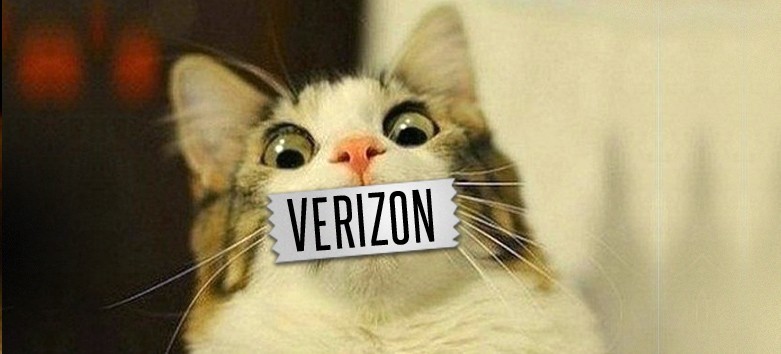
Verizon vs. Humans
Last summer, Verizon — joined by smaller cellphone carrier MetroPCS — sued the Federal Communications Commission for adopting some Net Neutrality rules. The companies even claimed the constitutional right to censor everyone’s online speech. But with the court case moving forward, more and more people are countering this dangerous argument.
The FCC's Open Internet rules, while definitely imperfect, help ensure we have the freedom to communicate online without fear of being blocked by Internet service providers. Entrepreneurs have more freedom to create the next Facebook or Google, and won't be stuck wondering whether Comcast or Verizon will shut them down the minute these ISPs sense a threat to their old business models and their stranglehold on the market.
In its court filing, Verizon argued not only that the FCC doesn't have the right to adopt Net Neutrality rules but — get this — that Verizon and its pals actually have a First Amendment right to "edit" the Internet.
Corporate personhood: 1. Humans: 0.
Verizon argues that it's entitled to the same constitutional right to free speech as those of us who are actually human:
The First Amendment protects not only traditional speakers, but other participants in the "communication of ideas."
ISPs like Comcast and Verizon are in the business of transmitting — over wires and wireless connections — the speech of others. But Verizon is claiming that this transmission is also speech and gives the company power over what the rest of us say. In other words, Verizon argues that ISPs have the right to select what content they carry, and says they should be given the same protections as a newspaper or website:
For example, [the First Amendment] protects those transmitting the speech of others, and those who "exercis[e] editorial discretion" in selecting which speech to transmit and how to transmit it.
Translation: The First Amendment gives Verizon the right to censor speech online. More:
Just as a newspaper is entitled to decide which content to publish and where, broadband providers may feature some content over others.
(Verizon, I know newspapers, and you're no newspaper.)
This month, two groups of lawyers and telecommunications experts have filed briefs with the D.C. Circuit Court of Appeals (the court hearing the Verizon case).
The first brief, filed by former FCC Chairman Reed Hundt, former FCC Commissioner and Free Press board member Michael Copps and former White House adviser Susan Crawford, argues that Verizon's claim "has no basis in constitutional law, and in fact repudiates many positions taken by Verizon before Congress, courts and the FCC over the years."
This group's filing was supported by three members of the House Energy and Commerce Committee — Reps. Anna Eshoo, Edward Markey and Henry Waxman — who found Verizon's constitutional argument "troubling."
Another brief, filed by the Center for Democracy & Technology, makes a similar argument against Verizon's First Amendment assertion:
The Internet’s unique capacity to empower individual speakers could be irrevocably damaged if this Court accepts Verizon’s argument that the Open Internet Rules violate Verizon’s own purported First Amendment interest in exercising unfettered "editorial discretion" over the Internet content that its customers choose to send or receive.
Whatever they think of the FCC's Open Internet rules themselves, these filers rightly stood up to counter Verizon's dangerous constitutional argument.
But that argument is so egregious — and so offensive — that we need do everything we can to remind Verizon — and policymakers — of two simple facts: Verizon is not human, and it is not a newspaper.